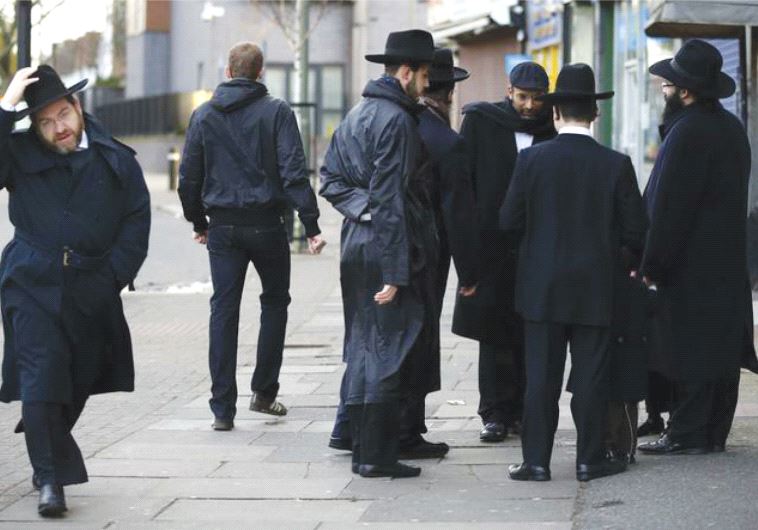London Jews fear Brexit repercussions amid housing slump
The London bubble may have burst not only because of Brexit uncertainty, but also because “prices had become unaffordable,” Murray said.
 JEWISH MEN share a conversation in Golders Green, London, in January 2015.Updated:
JEWISH MEN share a conversation in Golders Green, London, in January 2015.Updated: